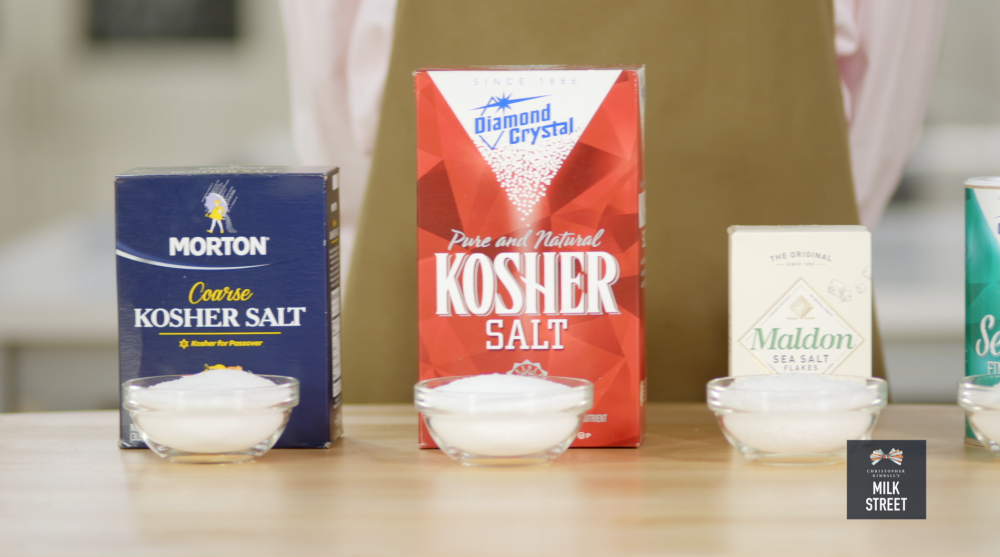It’s just salt, right? Actually, it’s not so simple. It turns out that the kind of salt you use matters greatly, even down to the specific brand. After much internal debate and testing, here’s where Milk Street stands on the great Morton’s vs. Diamond Crystal kosher salt conundrum.
Like most of the food world, we cook with kosher salt rather than table salt because of ease (kosher salt is easier to pinch on the fly), better seasoning (it clings better to meats), and flavor (it has a clean, briny taste that is untainted by the iodine added to table salt). We also find it is harder to over-salt when using kosher. Table salt has a much finer grain, and therefore weighs more by volume, making it easy to add too much.
But kosher salt is not nearly as simple as it seems. Two brands dominate the market—Diamond Crystal kosher salt and Morton’s Coarse kosher salt—and they cannot be swapped one-for-one. That’s because the two vary greatly in granule size. So recipes developed with one brand can end up over- or under-salted if prepared with the other.
Diamond Crystal granules are large, crystalline and delicate, whereas Morton’s are smaller, denser and crunchier. And size matters — 1 teaspoon of Morton’s contains 4.8 grams of salt, whereas 1 teaspoon Diamond Crystal has just 2.8 grams. In practical terms, that means roughly 1 tablespoon of Diamond Crystal equals 1½ heaping teaspoons of Morton’s. Swapping one for the other can easily throw off a recipe.
Join the conversation in on Facebook, Twitter, Instagram and Pinterest.




